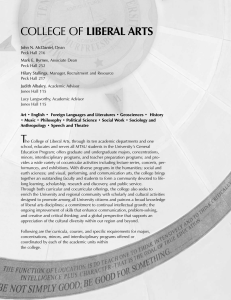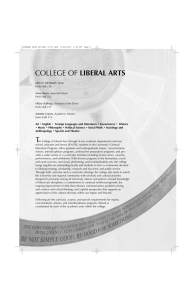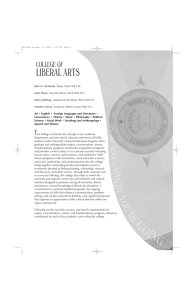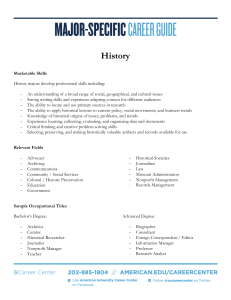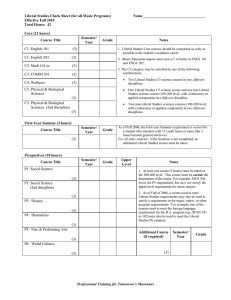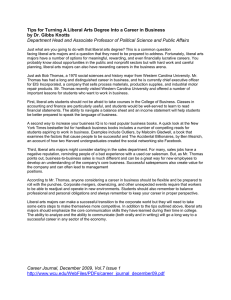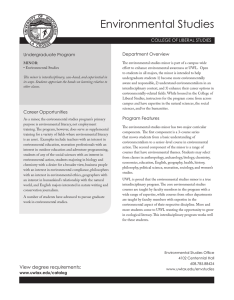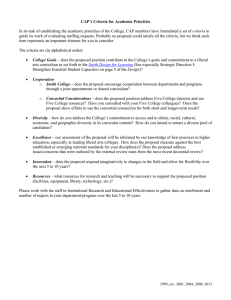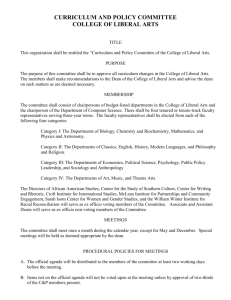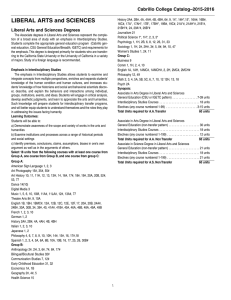CCVC meeting with Computer Science Department
advertisement
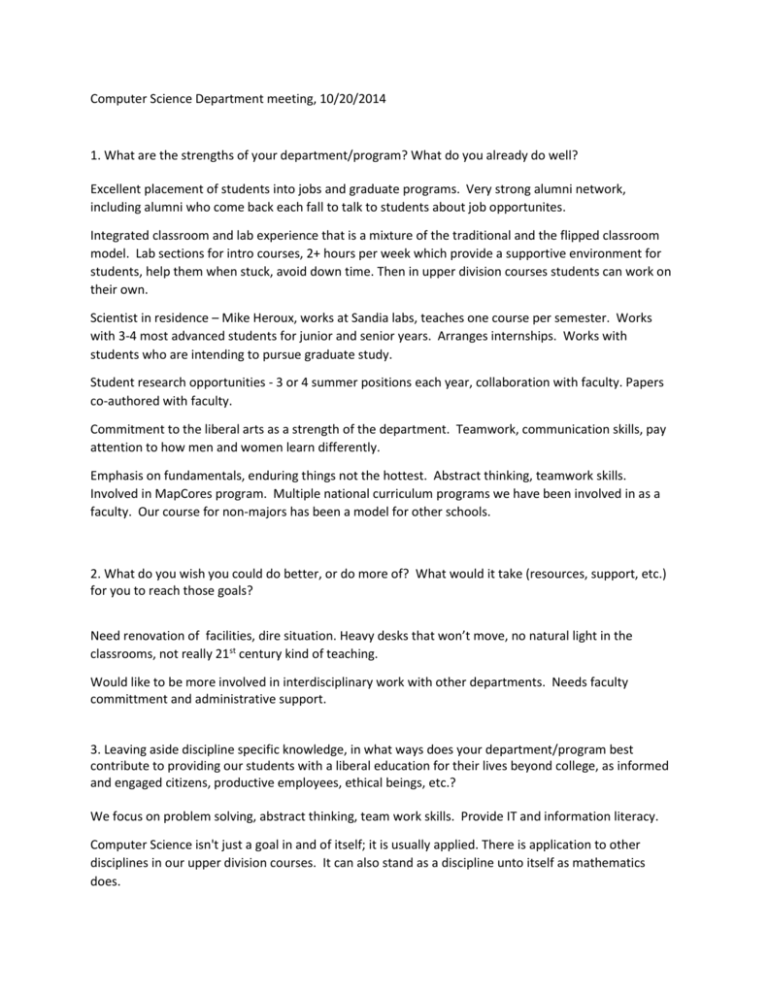
Computer Science Department meeting, 10/20/2014 1. What are the strengths of your department/program? What do you already do well? Excellent placement of students into jobs and graduate programs. Very strong alumni network, including alumni who come back each fall to talk to students about job opportunites. Integrated classroom and lab experience that is a mixture of the traditional and the flipped classroom model. Lab sections for intro courses, 2+ hours per week which provide a supportive environment for students, help them when stuck, avoid down time. Then in upper division courses students can work on their own. Scientist in residence – Mike Heroux, works at Sandia labs, teaches one course per semester. Works with 3-4 most advanced students for junior and senior years. Arranges internships. Works with students who are intending to pursue graduate study. Student research opportunities - 3 or 4 summer positions each year, collaboration with faculty. Papers co-authored with faculty. Commitment to the liberal arts as a strength of the department. Teamwork, communication skills, pay attention to how men and women learn differently. Emphasis on fundamentals, enduring things not the hottest. Abstract thinking, teamwork skills. Involved in MapCores program. Multiple national curriculum programs we have been involved in as a faculty. Our course for non-majors has been a model for other schools. 2. What do you wish you could do better, or do more of? What would it take (resources, support, etc.) for you to reach those goals? Need renovation of facilities, dire situation. Heavy desks that won’t move, no natural light in the classrooms, not really 21st century kind of teaching. Would like to be more involved in interdisciplinary work with other departments. Needs faculty committment and administrative support. 3. Leaving aside discipline specific knowledge, in what ways does your department/program best contribute to providing our students with a liberal education for their lives beyond college, as informed and engaged citizens, productive employees, ethical beings, etc.? We focus on problem solving, abstract thinking, team work skills. Provide IT and information literacy. Computer Science isn't just a goal in and of itself; it is usually applied. There is application to other disciplines in our upper division courses. It can also stand as a discipline unto itself as mathematics does. Required Ethics course in the major. Added to curriculum before it was part of the core. Restricted to majors and minors. Capstone course focuses on writing, communication, presentation. Take that seriously throughout the major. Have had students do individualized majors in combination with other departments – music, English, art, etc. 4. Are there ways in which you would like to see your department/program contribute to liberal education that so far it has not been able to? We would like to be part of a real core curriculum that is interdisciplinary. Students need to understand the ramifications of technology, which permeate all parts of our society. We would like to move to a real core that is cross disciplinary that brings people together across departments. Computing and digital data permeate every discipline. We would like to offer our Ethics course to a wider audience. More interdisciplinary courses that integrate computing with biology, economics, etc. Upper division seminars, perhaps jointly taught by faculty from CS and another department. A better understanding of CS as a formative major, like Mathematics or English – one that pushes clear thinking, growing of the mind, with the added benefit of excellent grad school and job opportunities. That is a rare combination. We would like more students to take our introductory courses. We would like better integration between the majors and the core. Students believe that they do “real work” in the major, just check off the core. The cafeteria model is antiquated and does not attract students, does not help us stand out as a liberal arts institution. It perpetuates the silos of disciplines, prevents us from asking the most interesting questions. Issue of assessment and the common curriculum. If we are going to assess students before they leave, we will end up with a skills model. Our goals should be towards lifetime development as a liberal arts person. Some goals are not assessable.
